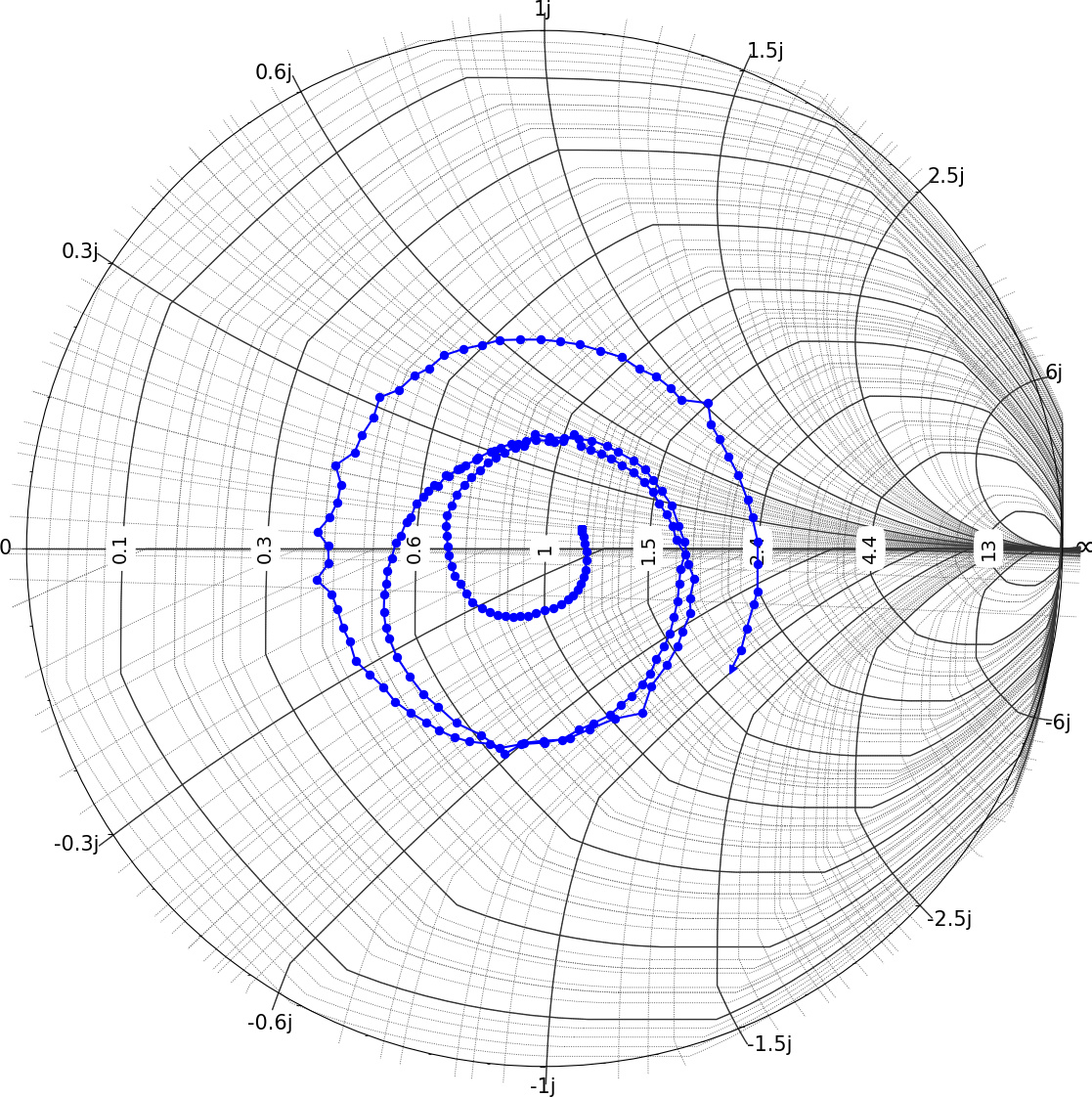
Radio operators are inherently familiar with the concept of standing-wave ratio, i.e., a measure of how well a load is matched to a transmission line.

We’ll use an example to show how the Smith chart was developed. The Smith chart provides a concise way to view a number of different characteristics of RF systems, such as impedance and voltage standing-wave ratio (VSWR).

In 1939, he had an article published in Electronics Magazine describing what later came to be known as the Smith chart. Fascinated by the repetitive nature of the impedance variation along a transmission line and its relation to the standing-wave amplitude ratio and wave position, Smith devised an impedance chart in which standing-wave ratios were represented by circles. Phillip Smith, 1ANB (SK), was an electrical engineer who graduated from Tufts College in 1928, and then went to work in the radio research department at Bell Telephone Laboratories. And that’s what ham radio’s all about, right? Otherwise, we may as well use a telephone or the Internet to communicate over large distances! And don’t worry we’ll keep the equations to a minimum (or in footnotes). In addition, the knowledge gained in its use adds to our general knowledge of radio systems. Why use a seemingly-archaic tool such as the Smith chart, when calculators and software are readily available? For one, the chart remains useful as a visualization tool, representing a wealth of information in a very precise and intuitive manner.

Here then, is a brief introduction to the Smith chart. But although questions regarding the chart appear in the Amateur Extra License exam, the current Question Pool has a mere 11 questions on the topic, leaving a full appreciation of the tool to the more inquisitive student.

The advent of low-cost antenna analyzers and vector network analyzers (VNAs) has resulted in a renewed interest in an 80-year old tool called the Smith chart, a graphical device used to view the characteristics of RF transmission lines, antennas, and matching circuits, and to aid in the design of those systems.


 0 kommentar(er)
0 kommentar(er)
